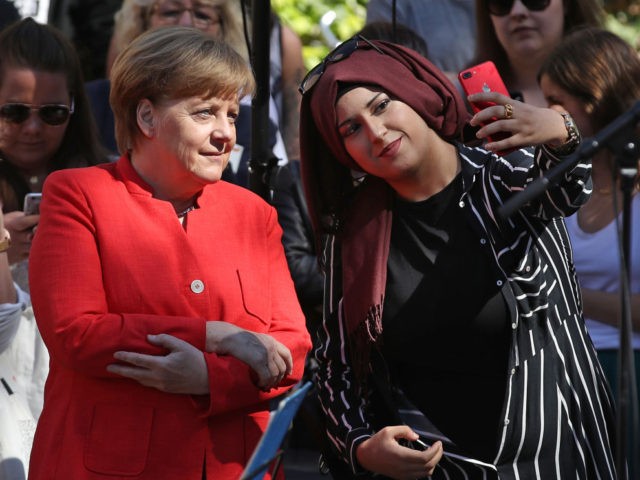Germans have grown significantly more tolerant of homosexuals in recent years while attitudes towards Muslims have hardened somewhat, according to a new study which showed the majority of respondents are uncomfortable with the hijab and the spread of mosques.
A survey of more than 1,000 men and women found that while 70 per cent of Germans would support a law forcing medical insurance companies to cover sex change surgeries for people who identify as transgender, a majority would also object to having a Mosque in their neighbourhood.
The results of the Playboy Germany study, which was published Thursday, shows a significant shift in attitudes towards sexual minorities from earlier surveys on the subject which were compiled by the country’s Bundestag in 2016.
While homosexuality was viewed as an illness by 53 per cent of married men in 1949, by 1976 the figure had more than halved — dropping to just 25 per cent — noted DW News, commenting that past polls illustrate “a country that has become more open each decade”.
With that in mind, the results of the new poll showing the nation has not similarly warmed to Muslims in recent decades appeared to have come as a surprise and disappointment to the liberal media outlet and public broadcaster Deutsche Welle.
“Islamophobia” is nothing new, states DW, pointing to opposition to what it claimed was the “much-needed” past waves of mass migration from Turkey which began in the 1950s, before lamenting that the Playboy survey shows “Germans have remained stubbornly opposed to the presence of Islam in their communities”.
According to DW, “one of the more concerning statistics” was that the majority of Germans (56 per cent) would not be eager to have a mosque spring up in their neighbourhood, compared to just 17 per cent who said the same about Christian churches and 25 per cent about Jewish synagogues and Buddhist temples.
A large majority of respondents — more than 70 per cent — said they back the idea of banning teachers and public servants from wearing the hijab, while the proportion of Germans opposed to having an asylum centre built in their neighbourhood rose across most of the country compared to data from 2016.
“Hostility to Islam remains depressingly stagnant,” DW declares, noting the percentage of people who said they would not want Muslims as a neighbour grew from 25 per cent in 1991 to 26 per cent in 2008 amongst respondents in Western Germany, with the figure rising from 29 per cent to 33 per cent in Eastern Germany.
Seeking insight on why “homophobia has seen a drastic decrease” in Germany while “Islamophobia has remained stubbornly stagnant”, the globalist broadcaster spoke to a social psychology professor at the University of Koblenz on the topic.
Dr. Melanie Steffens said factors include “that coming out is voluntary, that the LGBT community has somewhat more control over how much of their identity people see” and that people may feel Muslims “hold ‘more different’ values to German culture than the LGBT community does”.
“Laws create norms — so for example, when you legalize gay marriage, that goes a long way for creating acceptance,” explained the professor, making no mention of Islamist terror attacks which have struck Germany in recent years, mass sexual assault in Cologne nor massive problems with criminal Arab gangs.

COMMENTS
Please let us know if you're having issues with commenting.